Neoliberalism
Part of a series on Politics / Government. [View Related Entries]
[View Related Sub-entries]
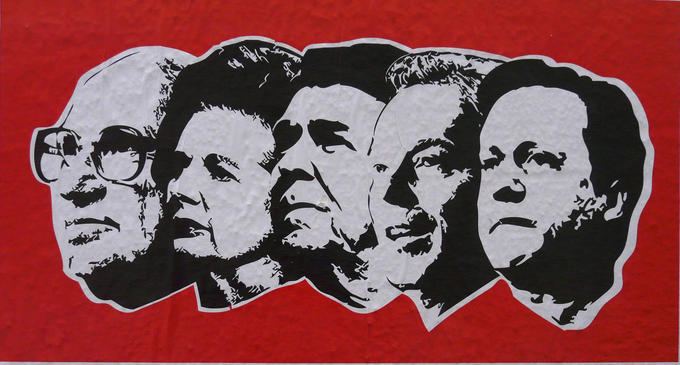
| Navigation |
| About • Historical Background • Criticisms • Related People and Events • Related Memes • Search Interest • References • Recent Images • Recent Videos |
About
Neoliberalism refers to a school of economic and political practice that arose during the early twentieth century, favoring free market, free trade solutions to problems and diminution of the role of the State in the economy. The term is frequently used in a derogatory manner by skeptics of free market-orientated philosophies, particularly that of Weird Twitter progressives and socialists, but has also been adopted by several online communities. Due to many different interpretations, defining neoliberalism is not an easy task. Boas and Gans-Morse[1]. claim that neoliberalism can be "a set of economic policies, a development model, an academic paradigm, and historical era."
Historical Background
According to Dieter Plehwe, the first used of the word "neoliberalism" can be attributed to the Swiss economist Hans Honegger, in which he identified “theoretical neoliberalism” as a compact of doctrines regarding competition and entrepreneurship and the opposition to socialism and communism and a skepticism towards the State[2].
One of the first definitions of neoliberalism, formalized in 1938 by the Colloque Walter Lippmann,[3] was as a doctrine involving "the priority of the price mechanism, free enterprise, the system of competition, and a strong and impartial state". The Colloque was organized because the liberalism itself was decadent in the 1930s, because of fascism on one side and the Welfare State on the other. Hartwich[4] writes that "…in the end the Colloque Walter Lippmann was united in their call for a new liberal project--a project that still needed a name. ‘Liberalism from the left’ was one idea; others were ‘positive liberalism’ or ‘social liberalism.’ But the term on which the participants actually agreed was ‘neoliberalism’." However, the definition of "neoliberalism" of the Colloque admitted a greater role for the state and was closer to the German ordoliberalism[5] than the free-market liberalism.
The Colloque Walter Lippmann, in a sense, evolved to the Mont Pèlerin Society. After a painstaking work to create a network of liberal thinkers. In 1947, they organized their first meeting at the Swiss resort of the same name, and the objective was to create a network in order to propagate the liberal thought. At this point, schisms became more prominent, especially between the "German neoliberalism" and the free-marketers, eventually leading to the distancing of the German neoliberals. Then, by the 1960s, the term "neoliberal" stopped being used altogether[6].
Then, in the 1970s, with the fall of Bretton Woods and a shift in the economic thought, towards a more free-market model, influenced by the work of Milton Friedman, Robert Lucas and others, the term "neoliberalism" started to be used to refer to the free market ideology imposed by the elites. In the 1980s, with the rise of Ronald Reagan and Margareth Thatcher (who said "There is no alternative", in reference that liberalization was the only option for serious governments), the neoliberalism became a political force. During this time, leftist critics started to frame neoliberalism as a "part of a hegemonic project concentrating power and wealth in elite groups around the world, benefitting especially the financial interests within each country, and US capital internationally. Therefore globalization and imperialism cannot be analyzed separately from neoliberalism."[7]
For them, neoliberalism is a structure created by the elites, especially American elites, in order to discipline the citizen into a consumer. Although neoliberals claim that the State intervention should be kept at minimum, authors such as David Harvey[8] claim that the ideology created the "Neoliberal State": the State must protect all of this and interfere as little as possible only to create markets and stuff and individual freedoms are guaranteed and are a mere consequence of the free market. In practice , for him, it is class warfare, in which the elite classed wanted to restore privileges lost in the welfare state era.
The relation between neoliberalism and globalization is present in the Washington Consensus, that, in spite of divergences between its original meaning, left critics claim that the Washington Consensus created the way for the free circulation of goods and people, privatization of State-owned enterprises and, in post-Socialists and Third World countries, selling these entreprises to multinational corporations. Thus, the population must be conditioned to accept the market as superior and their own definition of freedom. One of the most important reactions against the neoliberal project were the 1999 protests in Seattle related to the meeting of the World Trade Organization.
Neoliberalism shares many social goals with progressivism, but splits on economics due to the former's support for free enterprise and free trade agreements such as the TPP. To this end it shares many priorities with libertarianism, however the two ideologies also have irreconcilable differences due to neoliberalism's belief in the necessity of statism and occasional government intervention.
Criticisms
Neoliberal is often criticized by progressives and socialists as being hypocritical, as right-wing economics cause the social issues the philosophy claims to care about. George Monbiot wrote an article in The Guardian titled Neoliberalism – the ideology at the root of all our problems. One popular tweet by @crushingbort mocks the idea of being "fiscally conservative but socially liberal."

In general, neoliberalism has also been the target of leftist sections of twitter and Weird Twitter, particularly several pundits and news publications. Frequent neoliberal targets of criticism include New York Times writer Paul Krugman, New York Magazine writer Jonathan Chait, Vox writer Matty Yglesias, and Vox in general.


On the other hand, the term itself is heavily criticized by those who are labeled as neoliberals. They claim their leftist critics have little understanding of economics (with exception of The Road From Mont Pèlerin, most of the works cited above make little citations to works in economic theory) and don't understand the historic development of the term itself. Harwich claims that "To those criticising neoliberalism today, the answer may well be just that: We need more of this kind of neoliberalism, not less. What we would need less of is only the rhetorical abuse of neoliberalism for political purposes."[9]
Thus, most economists have adopted the term neoliberal as a tongue-in-cheek statement towards their acceptance and emphasize the differences between neoclassical and Austrian economics, as is the case of r/neoliberal[10]. Others treat the term "neoliberal" as a conspiracy, in a similar way as some right-wing authors use the term Cultural Marxism.
There is also another group, led mainly by Orthodox Marxists that claim that Identity Politics is a form of neoliberalism that is a Trojan horse for those identifying with the left, because of the emphasis of individual freedoms come with a cost of ignoring bigger problems such as inequality and maintaining perceived neoliberals, such as Hillary Clintion, in the power[11][12]
Related People and Events
Hillary Clinton
Hillary Clinton, the Democratic Party candidate in the 2016 United States Presidential Election, has frequently been described as a politician with neoliberal beliefs and/or neoliberal allies.[13][14]
Trans-Pacific Partnership
The TPP was a multilateral free trade agreement often cited as a priority of neoliberal advocates of economic globalization.
Related Memes
While a majority of memes revolving around neoliberalism portray it in a negative light, on reddit, the /r/neoliberal[15] subreddit has made ironic and sincere memes portraying it in a positive light. Examples of both negative and positive memes shown below.





![[shills free trade] -On All Levels Except Physical I am 90s Krugman [shills free trade]](https://i.kym-cdn.com/photos/images/masonry/001/241/649/b47.png)
Search Interest
References
[1] Boas Taylor, Jordan Gans-Morse. From Rallying Cry to Whipping Boy: The Concept of Neoliberalism in the Study of Development. Paper presented at the annual meeting of the American Political Science Association, Marriott, Loews Philadelphia, and the Pennsylvania Convention Center, Philadelphia, PA. 2006
[2] Philip Mirowski, Dieter Plehwe (eds.). The Road From Mont Pèlerin, Cambridge: Harvard University Press, 2009, p. 10-11.
[3] Wikipedia – Colloque Walter Lippmann
[4] Marc Oliver Hartwhich. Neoliberalism: The Genesis of a Political Swearword, 2009.
[5] Wikipedia – Ordoliberalism
[6] Harwich, 2009.
[7] Alfredo Saad-Filho, Deborah Johnston, Neoliberalism: a critical reader. London: Pluto Press, 2005, p. 1.
[8] David Harvey. A Brief History of Neoliberalism. Oxford: Oxford University Press, 2005.
[9] Harwich, 2009.
[10] Reddit – /r/neoliberal
[11] Adolph Reed Jr. From Jenner to Dolezal: One Trans Good, the Other Not So Much
[12] Urban Dictionary – Neoliberal identity politics
[13] National Review – Hillary's Neoliberals
[14] Salon – Neoliberalism's epic fail
[15] Reddit – /r/neoliberal
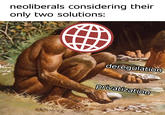
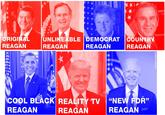






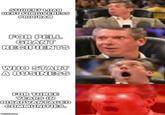


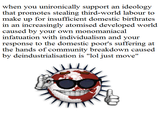

Comments ( 77 )
Sorry, but you must activate your account to post a comment.
Please check your email for your activation code.